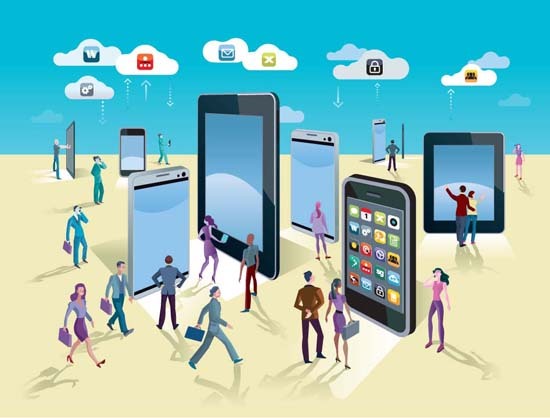Lately there's been a flotilla of tweets, status updates, blog posts, news articles and seeming panic-attacks about social media giants and a previously secret program called PRISM -- a six-year-old classified intelligence program that "[taps] directly into the central servers of nine leading U.S. Internet companies, extracting audio, video, photographs, e-mails, documents and connection logs."
According to The Guardian, Microsoft was the first to participate in the program:
It was followed by Yahoo in 2008; Google, Facebook and PalTalk in 2009; YouTube in 2010; Skype and AOL in 2011; and finally Apple, which joined the program in 2012. The program is continuing to expand, with other providers due to come online.
News outlets such as The National Journal are leading the pack of what has the appearance of attacks on Big Media and the Feds, even before the allegation has been proven:
PRISM allegedly involves data collection by the FBI, the fruits of which are then relayed to the NSA. If the report is true, the surveillance scandal will have crossed from simple metadata and envelope surveillance into the realm of wiretapping, which by definition involves the collection of actual content.
Wiretapping? Really?!
Who's Concerned?
The latest Pew Research suggests otherwise. According to them:
"Teens are sharing more information about themselves on social media sites than they have in the past, but they are also taking a variety of technical and non-technical steps to manage the privacy of that information. Despite taking these privacy-protective actions, teen social media users do not express a high level of concern about third-parties (such as businesses or advertisers) accessing their data; just 9 percent say they are "very" concerned."
Pew also conducted a similar survey of parents and their concerns:
- 81 percent of parents of online teens say they are concerned about how much information advertisers can learn about their child's online behavior, with some 46 percent being "very" concerned.
- 72 percent of parents of online teens are concerned about how their child interacts online with people they do not know, with some 53 percent of parents being "very" concerned.
- 69 percent of parents of online teens are concerned about how their child's online activity might affect their future academic or employment opportunities, with some 44 percent being "very" concerned about that.
- 69 percent of parents of online teens are concerned about how their child manages his or her reputation online, with some 49 percent being "very" concerned about that.
- Some of these expressions of concern are particularly acute for the parents of younger teens; 63 percent of parents of teens ages 12-13 say they are "very" concerned about their child's interactions with people they do not know online and 57 percent say they are "very" concerned about how their child manages his or her reputation online.
That doesn't sound like concerns of "surveillance" or "wiretapping" to me. Social network users are definitely becoming more active in pruning and managing their accounts. Un-friending people on Facebook, un-following others on Twitter; it's taken a decade or so for people to become savvy as to how they use social media and who they interact with. We're learning how to choose our social media friends in the same way we've learned how to choose our "real-time" friends.
But the scare tactics involved in this latest social-media corporation bashing have the appearance of being over-the-top. Does anyone like having the Federal Government looking over our shoulders while we read this? No. But would anyone complain if, after the 9/11 attacks, the Feds used social media to discover and capture those responsible for it? I doubt it.
Who's Responsible...
Despite the shortcomings and the fallacies of those we have elected, the government is responsible to protect the best interests of the people. Social media has changed everything, like it or not. Information is being passed around like potato chips at a party -- indiscriminately and to anyone who cares to grab a chip, or in this case, information. Someone has to act as a monitor. I might agree that the Feds are not exactly the most reliable or the most trustworthy, but who is?
There's a considerable distinction between "targeting" and "acquisition." PRISM permits targeting only of foreign nationals outside the United States. The issue people appear to have is that it doesn't preclude the incidental gathering of information about U.S. citizens.
The latest Allstate/National Journal Heartland Monitor Poll has found:
"85 percent of adults surveyed said it was likely that their 'communications history, like phone calls, e-mails, and Internet use,' was 'available for businesses, government, individuals, and other groups to access without your consent.' That was a higher percentage than believed that any other kind of private information, such as medical and financial records, is being obtained without their approval."
If we have nothing to hide, why are we so concerned about Fed-snooping? And why share more info than we want others to know?
Personal responsibility appears to have become outmoded and outdated. Finger-pointing has replaced it. First, Big Tech was bashed for making a profit; now it seems we're bashing it for allowing the Feds to see things we share with our social media networks.
If we put our information out there and expect others to respond to it, why is Big Tech to blame?


